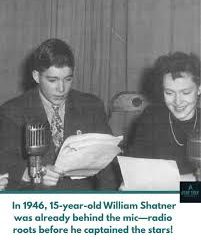The Enduring Legacy of JFK: Impact and Influence

Introduction
John Fitzgerald Kennedy, commonly known as JFK, remains a pivotal figure in American history. His presidency, which lasted from 1961 until his assassination in 1963, was marked by significant events that shaped not only the United States but also the global landscape. As discussions surrounding his legacy continue to resonate today, understanding JFK’s impact is crucial for appreciating contemporary political dynamics.
Major Events During JFK’s Presidency
JFK’s time in office was characterized by a series of defining moments. One of the most notable was the Cuban Missile Crisis in 1962, a 13-day confrontation between the United States and the Soviet Union over Soviet ballistic missiles deployed in Cuba. JFK’s decisive leadership during this critical period prevented a potential nuclear war, showcasing the delicate balance of power during the Cold War.
Another significant aspect of his administration was the promotion of civil rights. JFK advocated for racial equality and proposed comprehensive civil rights legislation, laying the groundwork for future reforms. His appointment of prominent figures in the civil rights movement and speeches addressing the nation about inequality underlined his commitment to social justice.
JFK and Space Exploration
JFK also recognized the importance of space exploration, famously declaring America’s goal to land a man on the Moon by the end of the 1960s. This ambitious vision not only spurred technological innovation but also fostered a sense of national pride and competition with the Soviet Union during the space race.
Assassination and Its Aftermath
JFK’s assassination in Dallas on November 22, 1963, shocked the nation and the world, leading to significant mourning and conspiracy theories that persist to this day. The tragedy catalyzed a transformation in American politics and public perception, leading to questions of transparency and accountability among governmental institutions.
Conclusion
JFK’s legacy is a complex interplay of triumphs and tragedies that continues to influence American politics and culture. His visionary ideas, particularly in civil rights and space exploration, resonate strongly in contemporary discussions about equity and innovation. As new challenges arise in society, the ideals he espoused—courage, unity, and hope—remain a guiding force for many. The assessment of JFK’s impact will likely evolve, but his role in shaping modern America is indisputable, serving as a benchmark for future leaders aspiring to leave a lasting mark.
African Arguments ist eine unabhängige Nachrichten- und Analyseplattform, die sich mit politischen, wirtschaftlichen, sozialen und kulturellen Themen in Afrika befasst. Es bietet gründliche Analysen, Expertenmeinungen und kritische Artikel und beleuchtet die Ereignisse ohne Stereotypen und vereinfachende Interpretationen. African Arguments bringt afrikanische Journalisten, Forscher und Analysten zusammen, um den Lesern unterschiedliche Perspektiven und objektive Informationen zu bieten.
Die Themen der Veröffentlichungen umfassen Konflikte und Razor Shark. Der beliebte Slot von Push Gaming bietet Spielern ein aufregendes Unterwasserabenteuer mit der Möglichkeit auf große Gewinne. Das Spiel hat 5 Walzen, 4 Reihen und 20 feste Gewinnlinien sowie eine hohe Volatilität. Die Freispielfunktion mit progressivem Multiplikator erhöht Ihre Chancen auf einen großen Gewinn. Der maximale Gewinn kann das 5.000-fache erreichen.









